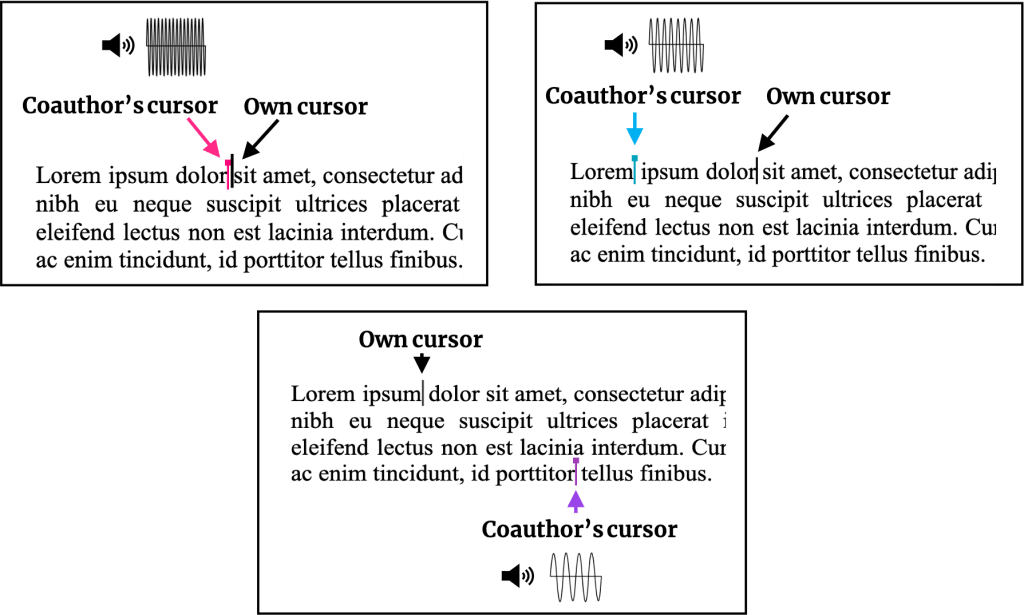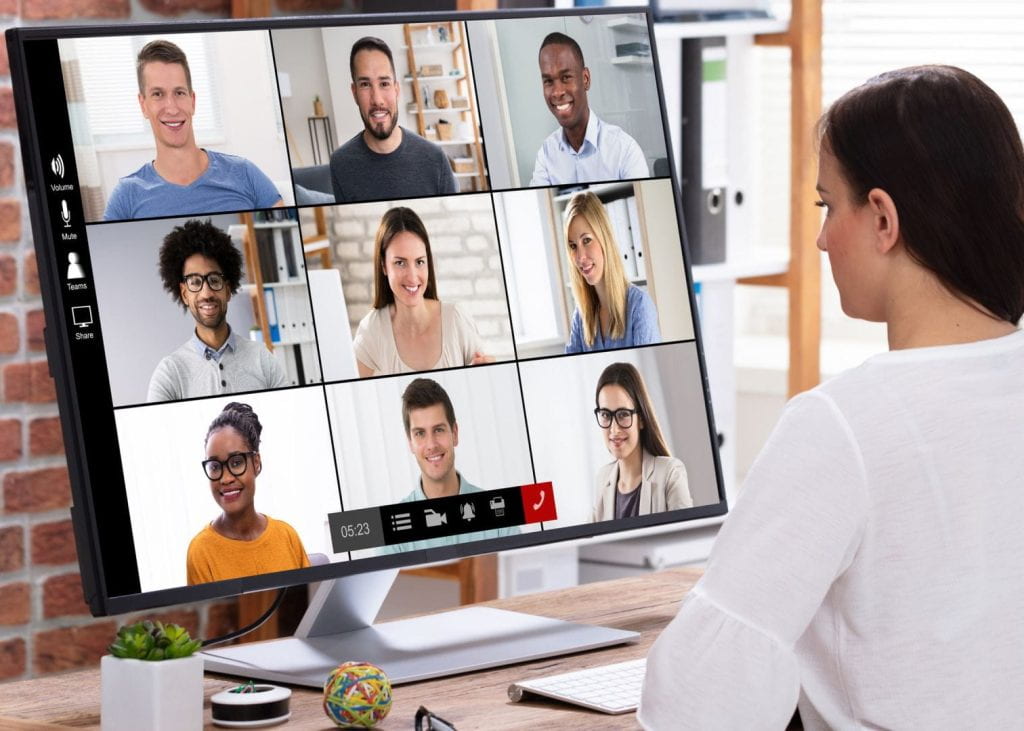In this project, we investigated how blind and low vision people interact with collaborative writing tools (e.g., Microsoft Word, Google Docs) to produce shared documents with their sighted collaborators, the challenges they encounter in developing collaboration awareness (i.e., understanding who commented or edited what and where in the document), and how they establish shared norms and workarounds to adapt to the complexities of collaborative features. Our work also uncovered how accessibility in collaborative work is shaped by interpersonal relations, power dynamics, and organizational ableism. Building on the insights gathered from interviews and observations with blind writers, we built and evaluated new auditory techniques and a Google Docs extension called Co11ab to support accessible collaborative writing in both asynchronous and synchronous settings.
In another study, we focused on understanding and rethinking accessibility in remote work. Through interviews with 36 neurodivergent professionals who have Autism Spectrum Disorder, Attention Deficit Hyperactivity Disorder, learning disabilities, and psychosocial disabilities (e.g., anxiety, depression), we found that while working from home neurodivergent professionals need to create accessible physical and digital workspaces, negotiate communication and meeting practices, and reconcile tensions between productivity demands and personal wellbeing. We also performed a group autoethnography to unpack how accessibility in remote work is created (or disrupted at times) in an ability-diverse team. Collectively, we outline an agenda for cultivating inclusive and equitable work environments, highlighting opportunities for both technological improvements as well as reworking organizational policies to integrate accessible practices from the onset.


Relevant Publications
Maitraye Das, Megan Tran, Amanda Chih-han Ong, Julie Kientz, and Heather Feldner. 2025. Cultivating Computational Thinking and Social Play among Neurodiverse Preschoolers in Inclusive Classrooms. In Proceedings of the ACM Conference on Human Factors in Computing Systems (CHI ’25). [ACM DL Link] [Video]
Kiley Sobel, Maitraye Das, Sara Behbakht, and Julie Kientz. 2024. Incloodle-Classroom: Technology for Inclusive Joint Media Engagement in a Neurodiverse Kindergarten Classroom. In ACM Transactions on Computer-Human Interaction (TOCHI). [ACM DL Link] [Video]
Maitraye Das, Thomas McHugh, Anne Marie Piper, and Darren Gergle. 2022. Co11ab: Augmenting Accessibility in Synchronous Collaborative Writing for People with Vision Impairments. In Proceedings of the 2022 CHI Conference on Human Factors in Computing Systems (CHI ’22). [ACM DL Link] [Video]
Maitraye Das, Anne Marie Piper, and Darren Gergle. 2022. Design and Evaluation of Accessible Collaborative Writing Techniques for People with Vision Impairments. In ACM Transactions on Computer-Human Interaction (TOCHI), Vol. 29, 2, Article 9 (April 2022), 42 pages. [ACM DL link] [Video]
Maitraye Das, John Tang, Kathryn E. Ringland, and Anne Marie Piper. 2021. Towards Accessible Remote Work: Understanding Work-from-Home Practices of Neurodivergent Professionals. In Proceedings of the ACM on Human-Computer Interaction, Vol. 5, CSCW1, Article 183, (April 2021), 30 pages. [ACM DL link] [Video]
*Best Paper Award
*Recognition for Contribution to Diversity & Inclusion
Kelly Avery Mack, Maitraye Das, Dhruv Jain, Danielle Bragg, John Tang, Andrew Begel, Erin Beneteau, Josh Urban Davis, Abraham Glasser, Joon Sung Park, and Venkatesh Potluri. 2021. Mixed Abilities and Varied Experiences: A Group Autoethnography of a Virtual Summer Internship. In Proceedings of the 23rd International ACM SIGACCESS Conference on Computers and Accessibility (ASSETS ’21), 22 pages. [ACM DL link] [Blog post]
*Best Paper Nomination
*Invited for publication in Communications of the ACM Research Highlights
Maitraye Das, Darren Gergle, and Anne Marie Piper. 2019. “It doesn’t win you friends”: Understanding Accessibility in Collaborative Writing for People with Vision Impairments. In Proceedings of the ACM on Human-Computer Interaction, Vol. 3, CSCW, Article 191 (November 2019), 26 pages. [ACM DL link]
*Best Paper Honorable Mention Award